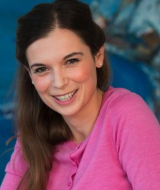The three pillars
Shared institutions, shared stories and shared opportunities can bring individuals and communities together, argues Rowenna Davis.
“It should be you strung up on that f**king hook!” the mother shouted at the butcher unloading carcasses on a crowded London Road in Croydon. The sheep’s throats were cut in the usual halal style, their bodies hanging heavily from the van.
This small snapshot from Croydon strikes at a deeper issue – the fault lines in our values and experiences that run through our communities which have been exposed by the Brexit vote. Living through these events, it is easy to feel we are clashing rather than talking. We might be living side by side in the same space, but too often there is no genuine connection.
Directly opposite that butchers sits Harris Invictus Academy, where I teach. There a very different story is unfolding. Fourteen-year-olds from every class and culture in Croydon have been creating poems about local identity. Today they are walking to a local park where their poems will be displayed on giant six-foot hoardings. Their voices and creativity cover their neighbourhood. Charities, teachers and the council have all worked together to make it happen. Now they are celebrating together.
How can two such different stories exist on just one road? And, more importantly, what has helped to create the conditions of the second story that were missing from the first? There is no fundamental reason or incompatibility that prevents different cultures building a common life together, but there are three important pillars that allow diverse groups to flourish and underpin our sense of community.
The first is shared institutions. School provides children with a common life; a set of values and rules that allow them to work together. But the butcher and the mother do not have an equivalent shared and respected institution, especially with the decline of unions, guilds and so on. Presumably if this butcher is halal we can assume the mosque provides him with a community institution, but this is not somewhere he is likely to build a common life with those outside of his faith. We simply need to build new, local, shared institutions.
Take Blue Labour’s “thirds model”, by which local services are led by users, workers and owners working in a co-operative board structure. A local hospital could be run by one third nurses and doctors, one third patients and one third owners. This model is likely to ensure better decision making by forcing the board to create a balance of interests. This safeguards against over-centralisation and prevents any particular group from dominating, and provides a meaningful, democratic means of ‘taking back control’ that goes beyond a soundbite.
Shared stories are also important for building commonalities in the community. The school children I mention earlier demonstrate this, since they are bound together by a common purpose: they knew that their common project would leave a beautiful mark on Croydon. Shared stories and shared values are crucial for cohesion; the belief that we should look after our families, that a quiet love of community runs deep within us, that faith, peace and stability should be cherished. These values would almost certainly be shared by the butcher, who works in a family business, and the mother, who carries her children with her on the street.
At a national level, shared stories are reflected in the patriotism that has always been at the heart of the Labour party – think Keir Hardie, George Lansbury and Clement Attlee. For what is patriotism if not a shared story for the nation? We cannot label patriotism a dirty word or cede our flag to the right.
Finally, a sense of shared opportunity is vital to bring communities together. The students at the school know that they have their whole lives ahead of them, but this is not always true for adults. Meaningful work is the way to build both an individual sense of self-worth and relationships with those nearby. Mechanisation, automation and technology are setting us a new set of challenges here. Lisa Nandy MP talks movingly about how her constituents powered the nation through the coalfields around Wigan in the past; in the future they should be doing the same but with clean technologies or solar power. We must therefore learn from Germany and provide a sophisticated, respected and powerful technical education for people as well as a regional banking system that provides capital across the country rather than in one small part of it.
Shared institutions, shared stories and shared opportunities; three pillars that bring individuals and communities together.
This is a shortened version of Rowenna’s chapter in Spirit of Britain, Purpose of Labour, the new book edited by Stephen Kinnock MP and Joe Jervis.

